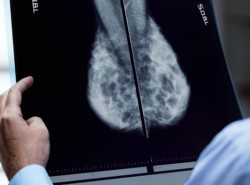
Ras/MAPK activation in triple-negative breast cancers (TNBCs) is associated with lower levels of tumour lymphocytic infiltration and poorer survival
Published: 10/9/19 1:48 AM

Sherene Loi
Patients with triple negative breast cancers (TNBC) have the poorest survival outcomes of all the breast cancer subtypes and unfortunately, TNBC is far more common in breast cancer diagnosed in younger women. At present we lack understanding of potential therapeutic targets that could be present in TNBC. Hence, research into TNBC is an urgent priority.
My lab was the first to publish that some patients with TNBC have the presence of a marked lymphocytic infiltration or features of inflammation in their breast cancer when they are diagnosed and that this feature is correlated with better survival outcomes. As such, we believe that this marker represents an immune response to the tumour. Currently we do not understand why some patients do or do not develop a good immune response to their tumour. We have preliminary data suggesting that activation of the RAS/MAPK signalling pathway is associated with lower immune responses to a patients’ TNBC. Our proposal aims to understand why this is so, and then test therapies that can enhance or create an immune response. We strongly believe that enhancing immunity will be a way to combat the poor outcomes of TNBC, but we need to first understand the intricacies of the relationship between breast cancer biology and host anti-tumour immunity.

